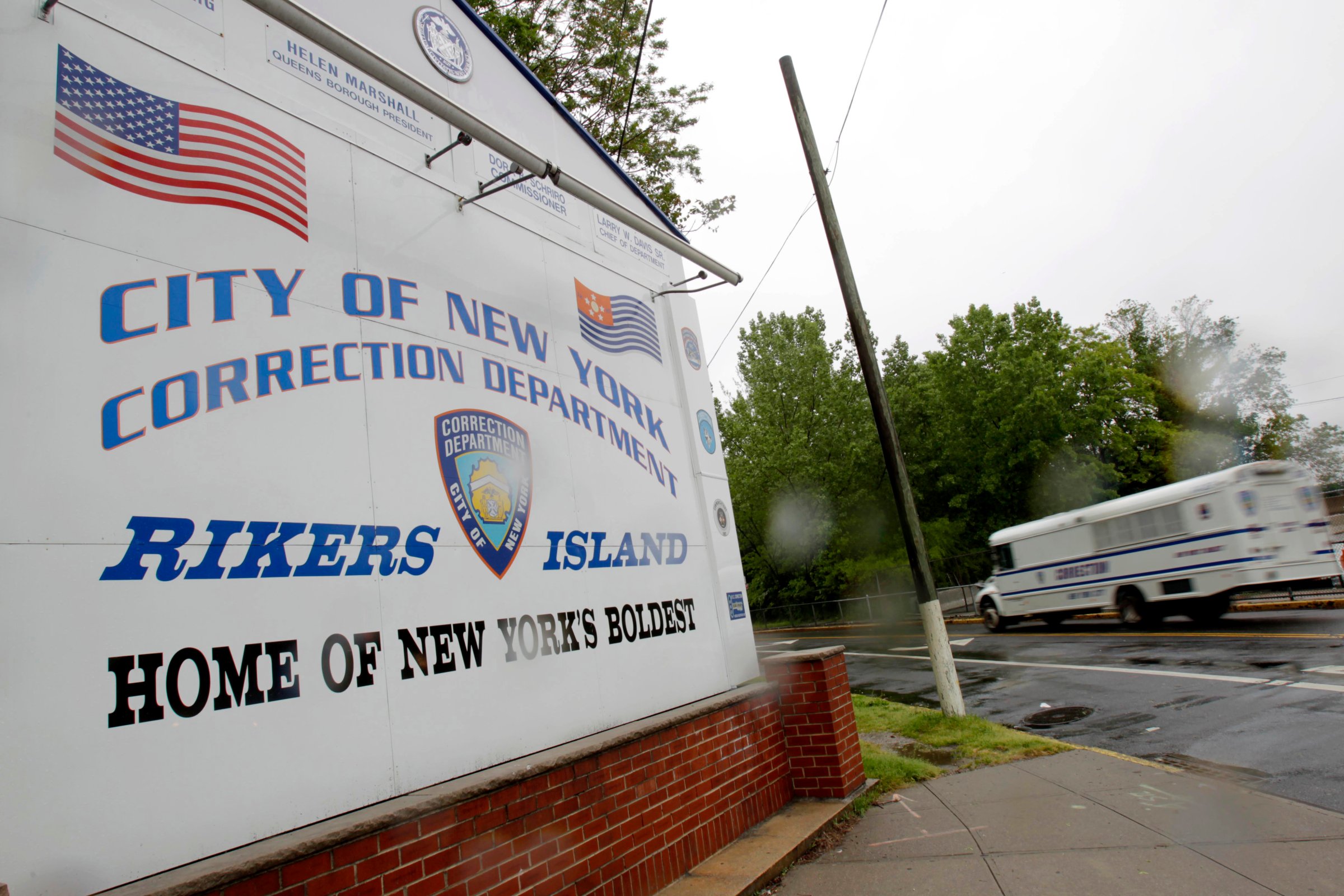
In her 19 years working on Rikers Island in New York City, one corrections officer tells TIME she has never seen anything like the chaos and uncertainty that the novel coronavirus is causing in the jail system. (TIME is choosing not to identify the officer, who cited concerns for their safety and job security.) Supervisors have not offered staffers much guidance on how to deal with an outbreak, she tells TIME; neither inmates nor correction officers have been provided with masks or cleaning materials like hand sanitizer or bleach.
Many workers are afraid that they could pass the virus on to their family members when they go home without knowing, the corrections officer continues. Inmates are also scared, and don’t want to be near anyone who has a cough or other flu symptoms. But no enhanced protocols for inmates to seek medical advice have been implemented, she continues, beyond the standard request an inmate can make to a corrections officer, saying they do not feel well and would like to see a doctor.
“Rikers Island is more reactionary than preventative… [administrators] wait for things to happen first before they do anything about it,” she says. “‘We feel like all of us are gonna get corona.”
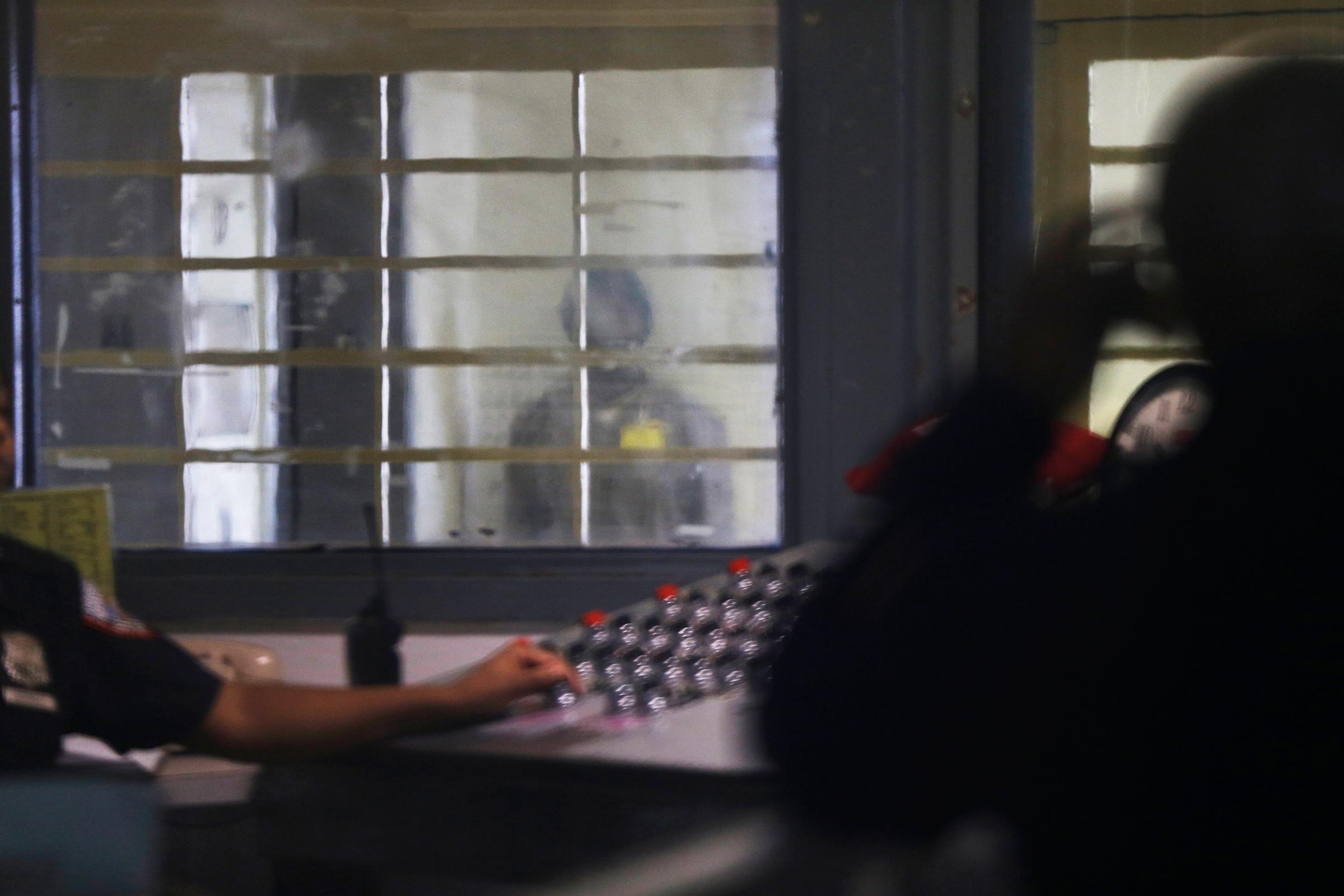
“Once the coronavirus is introduced into the [prison or jail] setting it would be extremely difficult to control its spread,” Daniel Nagin, a professor of public policy at Carnegie Mellon with a focus on criminology tells TIME. “It doesn’t surprise me that this problem has arisen at Rikers and at this point we will likely see it at other [facilities].”
Read more: Will the Coronavirus Ever Go Away? Here’s What One of the WHO’s Top Experts Thinks
New York City jails have a daily inmate population of around 8,900, according to the most recent figures provided by the New York City Department of Corrections (DOC). Rikers Island, situated in the East River between Queens and the Bronx, is comprised of 8 facilities and, on a a daily basis, houses between 5,000 and 6,000 inmates.
In New York state, the number of incarcerated people totals 92,000; across the United States, that total exceeds 2 million. And as COVID-19 continues to spread across the U.S., experts and activists believe that the jail and prison population — both inmates and employees — are at particularly high risk due to their very nature: the close quarters that inmates live in, the dirty communal spaces combined with a lack of reliable access to soap and water and the frequency with which transitional people (workers, visitors) interact with a static group (incarcerated people).
Dr. Jonathan Giftos, a former medical director at Rikers, says the proximity of people in the prison system means it’s impossible to implement social distancing. “The halls are small… many [inmates] are escorted in shackles. You cannot physically distance yourself from other people,” Dr. Giftos explains.
“At Rikers Island, the beds are two and a half feet from each other and people are being told to sleep head to foot,” Eliza Orlins, a New York City-based public defender, adds. “Obviously, this does not create enough distance to keep yourself healthy or safe if someone you are locked in a cell block with is infected.” (In some jails and prisons, social distancing has reportedly been implemented in yards and mess halls, but not throughout all spaces.)
‘The epicenter of the epicenter’
New York has over 23,000 confirmed cases as of 12 p.m. EST March 24, according to data from Johns Hopkins University. This number constitutes nearly a half of U.S. cases total, making the state an epicenter of the pandemic across America. More than 180 people across the state have died.
“New York City jails are the epicenter of the epicenter,” a spokesperson for the New York City Corrections Officer Benevolent Association (COBA) tells TIME. “Every day, more COs and more inmates are testing positive.” Hundreds of correctional officers across the city have, in recent days, been calling out sick. Of managing the emerging public health crisis, the spokesperson says that, “The city is asking COs to put out an inferno without even a fire extinguisher.”
In a statement sent to TIME on March 23, the DOC said that a total of 39 inmates and 21 DOC personnel have tested positive across NYC jails. At least 58 inmates are being monitored in contagious disease and quarantine units. (Confirmed coronavirus patients among New York prisons, meanwhile, now include Harvey Weinstein.) Last week, the DOC confirmed that an employee had died after testing positive for COVID-19, though the deceased is said to have had limited contact with people in custody.
“What we’re seeing at Rikers Island is that the numbers of people who have tested positive for COVID-19 are going up exponentially,” Orlins says. “I also don’t think the numbers we’re seeing begin to reflect the full number of people exposed or infected. This is not a natural disaster where we don’t know the numbers… this is something we can model out in real time and see exactly how many people will be infected if we don’t act today. The situation is dire.”
The COBA spokesperson adds that the union has been “fighting” for weeks to make sure officers have access to gloves, masks and other equipment they need to keep themselves safe. (COBA is also calling for a COVID-19 testing facility to be established at Rikers Island, where any NYC DOC employee could go to be tested.) Currently, employees who show up with respiratory ailments are sent home and advised to see a medical professional, the DOC says. They also cannot return to work until they provide documentation from a medical professional that they do not have the disease and are fit to work.
For inmates, visitation has been canceled entirely.
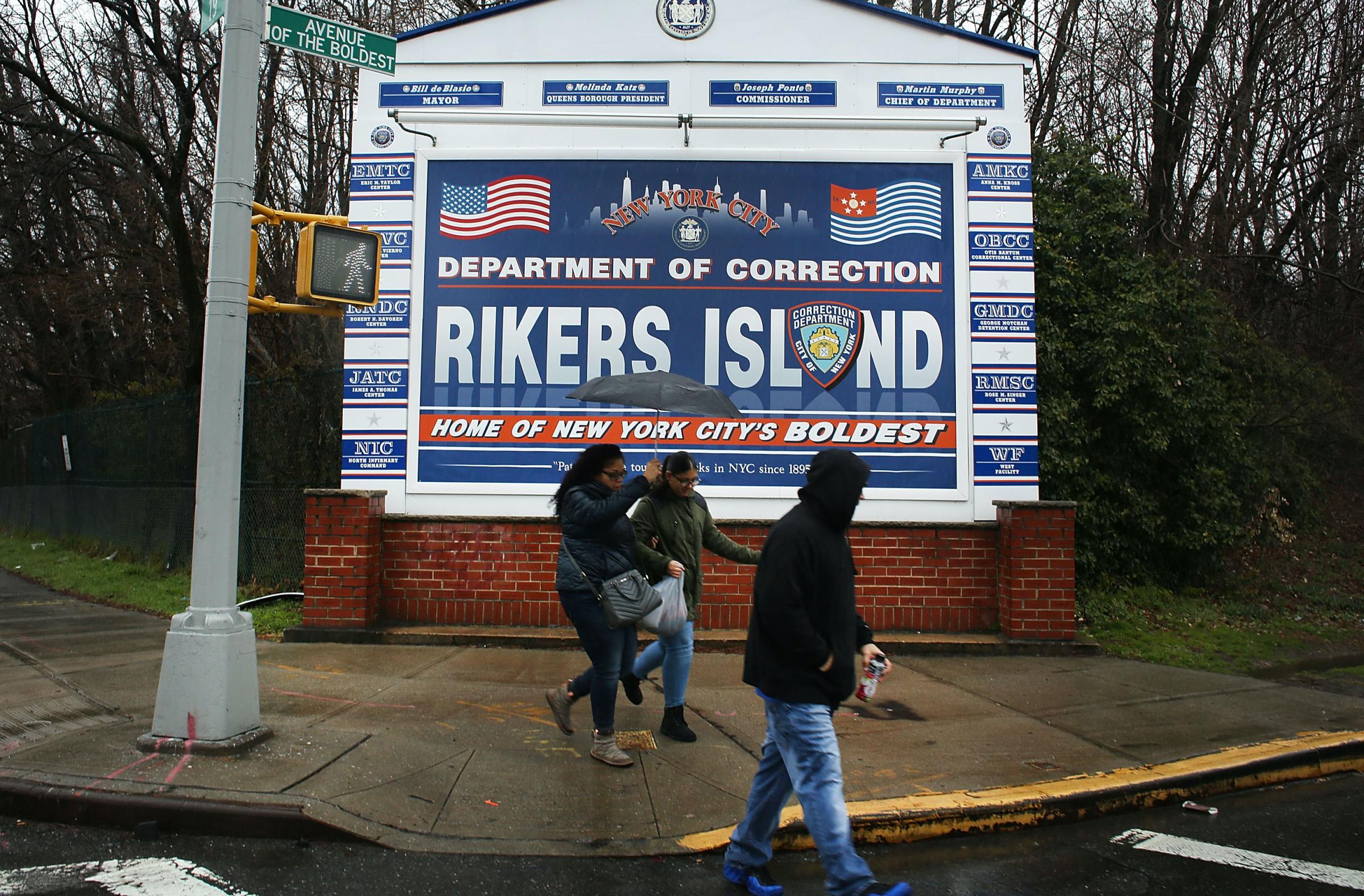
Kelsey De Avila, the director of jail services for the nonprofit legal defense organization Brooklyn Defender Services (BDS), says she has been in contact with many of the inmates her organization represents at Rikers Island, as well as in jails across New York City. She says that inmates have not received sufficient information from Correctional Health Services (CHS) or the DOC.
The DOC only started passing out flyers about coronavirus to inmates on March 20, De Avila claims. “A lot of the information they have been getting is from the news and that’s just because the TV is on in the [recreational] room,” De Avila tells TIME. “These are people that are just really in the dark about what’s happening.” (In an interview with the New York Times, a recently-released Rikers Island inmate said TV news coverage of coronavirus “caused a small riot in the jail.”)
Read more: How to Spot Coronavirus Misinformation
“The health and well-being of our personnel and people in custody is our top priority,” a statement provided to TIME by the DOC read. The department did not respond to TIME’s request for comment on these specific allegations.
“[Inmates] are worried, they’re panicking, they’re calling their families for information. Their families don’t know what’s going on either,” De Avila says. “They just don’t know what the department is doing to protect them.”
‘They feel like sitting ducks’
That sense of fear extends far beyond New York City, in sync with the transportation network of prisoners from the city’s jails to prisons across the state (and beyond). Just two weeks ago, a transport of prisoners from New York arrived at Midstate Correctional Facility in Mercy, New York; inmates do not believe that any of the men being transferred were quarantined, or inspected for coronavirus, before entering the general population, according to the wife of one Midstate inmate who TIME is choosing not to identify over concerns for her husband’s well-being.
ABC News has reported that, despite a 30-day freeze on inmate movement, the Federal Bureau of Prisons (BOP) is still arranging transports to/from facilities on a “case-by-case exception” basis. The NYC DOC has jurisdiction over city jails but the BOP has oversight over federal prisons; the BOP did not immediately respond to TIME’s request for comment.
“He’s pretty nervous about the conditions… He’ll put a sock over the phone before he calls me; he’s making sure he washes his hand,” the man’s wife tells TIME. “Hand sanitizer is contraband, and there’s no asking for, you know, bleach water or anything like that. He has bars of Dial anti-bacterial soap and I’ve told him, use that. Wipe stuff down with that.”
“He feels like he’s going to die, literally. He says, my days are numbered here — he’s said that more than once,” she says. “They feel like sitting ducks, waiting for one of the officers or a civilian visitor to bring [coronavirus] in. Because if it gets in there, what are they going to do?”
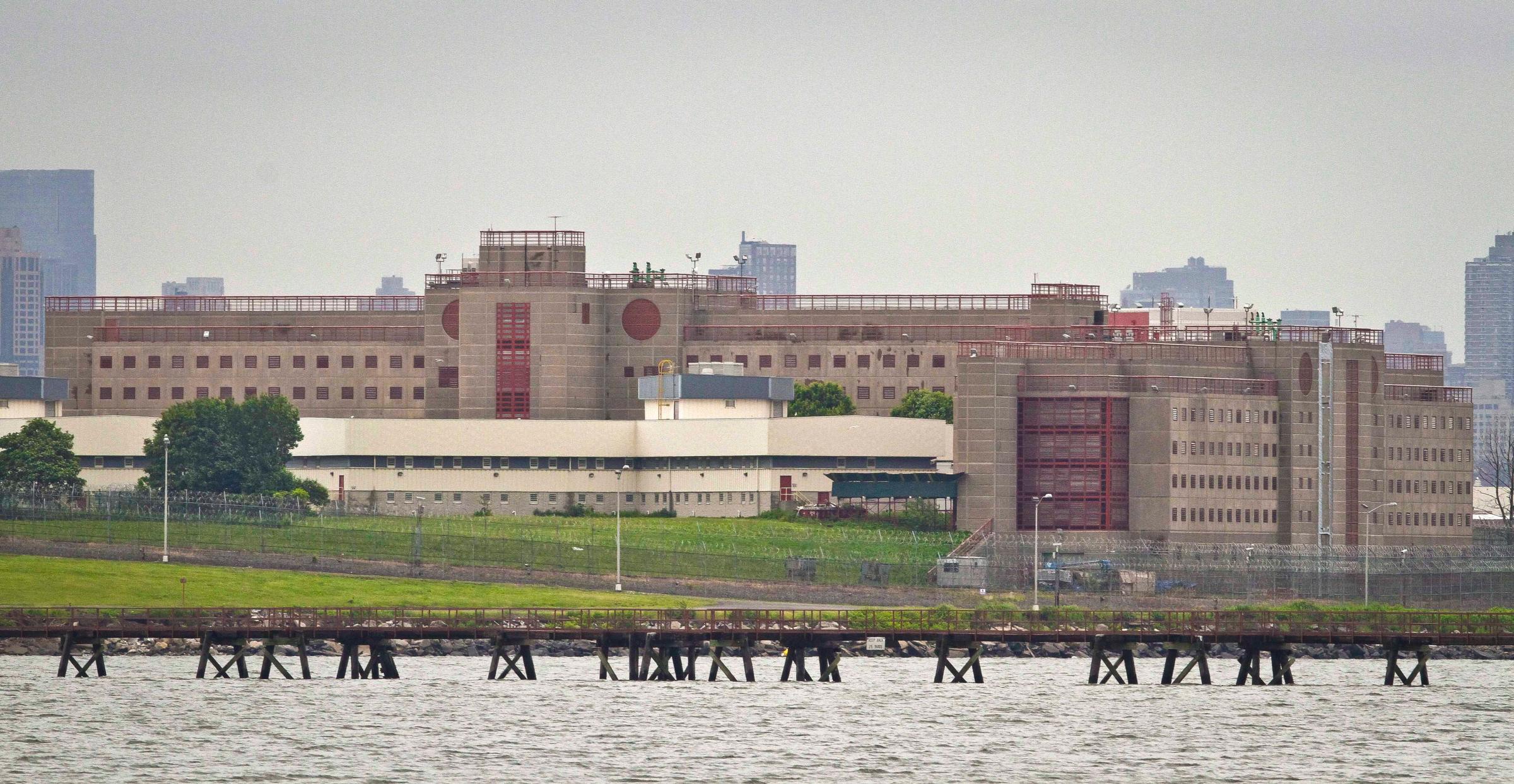
In a March 21 letter, the New York City Board of Corrections (BOC), an independent agency that provides oversight to the DOC, called for New York Mayor Bill De Blasio to release inmates over 50 years old, inmates with underlying health issues, inmates detained for administrative reasons as well as low-level offenders serving city sentences of under a year.
Read more: Behind the Covers of TIME’s Special Coronavirus Issue
“Fewer people in the jails will save lives and minimize transmission among people in custody as well as staff,” Jacqueline Sherman, the board’s interim chair wrote. “Failure to drastically reduce the jail population threatens to overwhelm the City jails’ healthcare system as well its basic operations.”
The BOC’s letter followed pleas for a decarceration-focused response to the threat of an outbreak made public on social media by a number doctors working at Rikers Island.
‘Spread like a wildfire’
“Public servants who care for those in your jails have been planning for this storm for weeks and months. We will muster every tool of public health, science and medicine to try to keep our patients safe,” Dr. Ross MacDonald, Chief Physician of Rikers Island, tweeted on March 18, describing the possibility of a coronavirus outbreak at Rikers as “a storm [that] is coming.”
“This is a public health response, not a criminal justice one,” Dr. MacDonald tells TIME. “The right preventive measures don’t exist to stop the spread of this virus in [jail and prison facilities].”
“We need to take the unprecedented step TODAY of providing urgent release to everyone in the jails who is at risk of serious morbidity and mortality from COVID. It cannot be kept out, and once it’s in, it will spread like a wildfire,” Rachael Bedard, a geriatrician working at Rikers Island, tweeted that same day. In a subsequent interview with The New Yorker, Bedard described the jail as “a perfect setup for an outbreak.”
“Depopulating, in this case, is not letting a dozen guys out or two dozen guys out,” Bedard told The New Yorker. “It means pushing as hard as possible for hundreds of people to get out so that the jail population is decreased enough that you don’t just benefit the people who are released but you also benefit those who are left behind — and the staff who take care of them and the officers who take care of them.”
(In New Jersey, over 1,000 inmates are scheduled to be released from the county jail in what’s believed to be the biggest preventative act any jail or prison administration has taken in response to the pandemic. California, Ohio and Oklahoma are among other states processing inmate releases.)
Keep up to date with our daily coronavirus newsletter by clicking here.
Overly-stretched resources, meanwhile, have already led to conflict between corrections officers and Rikers Island inmates. According to New York City news publication The City, eight inmates were pepper-sprayed for trying to go to the jail clinic and get their temperature checked on Saturday evening. “I think that this could make [correctional officers] more abusive,” Eileen Maher, a former Rikers Island inmate and current community leader at VOCAL-NY, a nonprofit criminal justice organization in New York City, tells TIME. “I think some of them will blame [a COVID-19 outbreak] on the detainees.”
Inmates have since begun a strike, refusing to attend their work duties or mealtimes. The DOC did not immediately respond to TIME’s request for comment on these allegations, but a spokesperson told The City the department is “deeply troubled by these allegations” and has opened an investigation into the incident.
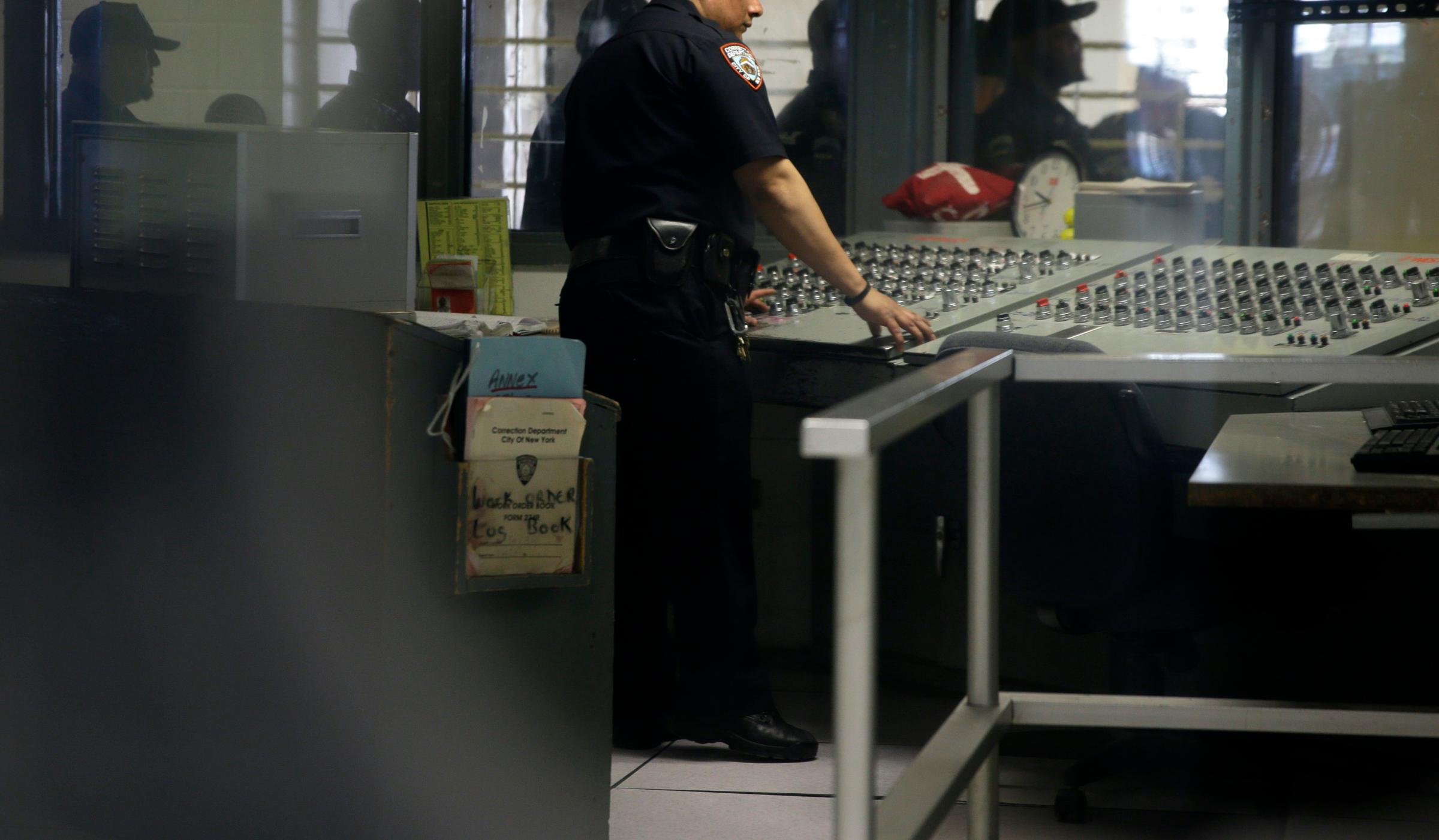
“Gov. Cuomo has the opportunity to be a hero right now and take executive action that will release many, many people,” public defender Eliza Orlins argues. “Mayor De Blasio also has the opportunity to show leadership; he too can release people. And the district attorney’s office can play a massive role. [District attorneys] can help with re-sentencing, [or] agreeing to the release of people in pre-trial detention.” In addition to reducing the current inmate population, these decisions would serve to limit the number of people entering the jail or prison system, Orlins explains, both limiting the possibility for, and spread thereof, COVID-19 infection.
“Public health is being disregarded; it’s not meant to be handled by individual defenders doing writs for [the release of] individual clients, Orlins continues. “There needs to be a massive-scale change in procedure in order to save the lives of many, many people… [but] there are DAs fighting against these writs.”
During a March 22 press conference, De Blasio announced that a first group of 23 inmates were being released from the city’s jail system — primarily individuals with a limited amount of time remaining on their sentencing. Two days later, a total of 75 people have been released, with an additional 200 people apparently still under review.
Given the widely-reported lack of COVID-19 tests, concerns have been raised regarding the potential release of asymptomatic coronavirus patients from prison, which could lead to a greater spread of coronavirus in already-disenfranchised communities. But prison reform advocates argue the benefits of such releases outweigh any such risks.
Speaking with TIME, the New York City Corrections Officer Benevolent Association spokesperson labeled De Blasio’s decision as “foolish,” arguing that, “You don’t solve a public health crisis by starting a public safety crisis.” Orlins counters, arguing this is a “false choice between public safety and a punitive legal system.”
“I don’t know that there’s a right answer here except to protect and release as many people as possible,” Orlins says.
Read more: Mapping the Spread of the Coronavirus Outbreak Around the U.S. and the World
Though conditions in the jail, which the New York City Council has agreed to close in 2026, have long been criticized, “I don’t think there is anything unique about Rikers” when it comes to the spread of coronavirus, Dr. Giftos worries. “The risk factors are similar [at other facilities],” he believes.
“There is simply no way to protect a jail [from a virus like this],” Dr MacDonald adds.
To this effect, coronavirus infections connected to jails and prisons have already been reported in multiple states: a Washington state prison employee has tested positive for COVID-19, as has a worker at a New Hampshire correctional facility, a BOP administrative office in Texas, a staff member at a local jail in Hancock County, Ind. and both a worker and an inmate at a Santa Barbara, Calif. jail.
“Imagine an already overburdened city hospital in your district having to receive case, after case, after case of severely ill patients and the officers who have to escort them,” NYC CHS physician Dr. Zachary Rosner wrote on Twitter on March 24. “Imagine what it looks like when our staff are home sick and cannot provide care in the jails.”
“Act at scale today,” he continued. “Otherwise, the suffering of the patients and staff… will be remembered for generations.”
Please send any tips, leads, and stories to virus@time.com.
More Must-Reads From TIME
- The 100 Most Influential People of 2024
- The Revolution of Yulia Navalnaya
- 6 Compliments That Land Every Time
- What's the Deal With the Bitcoin Halving?
- If You're Dating Right Now , You're Brave: Column
- The AI That Could Heal a Divided Internet
- Fallout Is a Brilliant Model for the Future of Video Game Adaptations
- Want Weekly Recs on What to Watch, Read, and More? Sign Up for Worth Your Time
Write to Josiah Bates at josiah.bates@time.com